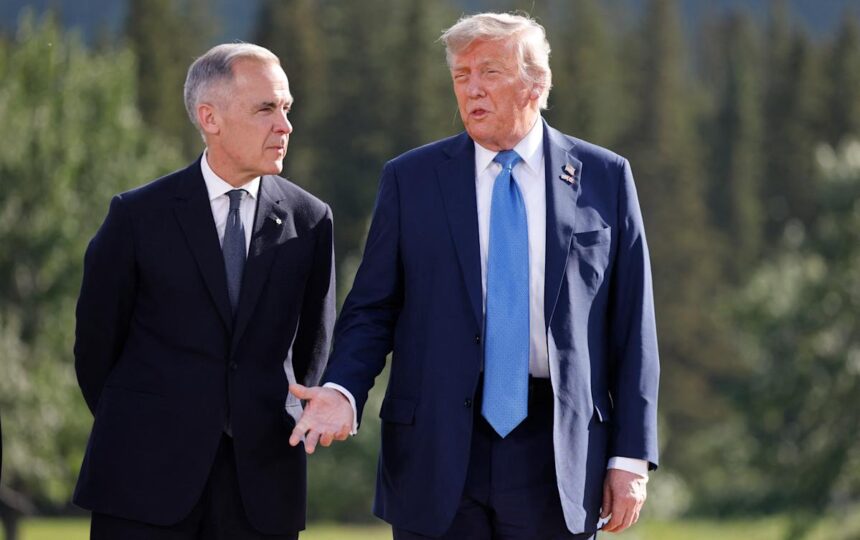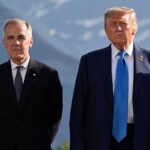In a dramatic shift in international trade dynamics, President-elect Donald Trump announced Tuesday he is terminating trade negotiations with Canada while simultaneously reaching a tariff truce with China. This unexpected move sends shockwaves through North American economic relations just weeks before Trump’s return to the White House.
“I am hereby terminating all Trade Talks with Canada,” Trump declared on his Truth Social platform, citing what he described as unfair policies affecting American dairy farmers and agricultural producers. The abrupt announcement comes after Trump previously threatened to impose a 25% tariff on all Canadian imports unless the country renegotiated terms more favorable to U.S. interests.
The severing of talks with America’s second-largest trading partner stands in stark contrast to a surprising development with China. Chinese officials confirmed reaching an agreement with Trump’s transition team to avoid the 60% tariffs he had repeatedly threatened during his campaign. According to sources familiar with the negotiations, China has committed to purchasing significant quantities of U.S. agricultural products and addressing intellectual property concerns.
“The contrast between these two trade developments couldn’t be more striking,” said Dr. Elena Moretti, international trade economist at the University of Toronto. “We’re seeing Trump employ his characteristic unpredictability, rewarding perceived cooperation while punishing what he views as resistance.”
Canadian Prime Minister Justin Trudeau responded with measured concern, emphasizing the deeply integrated nature of the U.S.-Canadian economies. “Our trade relationship supports millions of jobs on both sides of the border. We remain open to constructive dialogue that benefits workers in both nations,” Trudeau stated during a press conference in Ottawa.
Economic analysts are particularly concerned about the potential disruption to supply chains that have evolved over decades under the previous NAFTA agreement and its successor, the USMCA. The U.S. and Canada exchange approximately $2.4 billion in goods and services daily, with critical industries including automotive manufacturing, energy, and agriculture deeply intertwined across the border.
Meanwhile, financial markets reacted with volatility to these developments. The Canadian dollar fell nearly 1% against the U.S. dollar following Trump’s announcement, while U.S. stocks showed mixed reactions with agricultural and manufacturing sectors experiencing significant movement based on their exposure to either market.
The China truce appears to involve commitments from Beijing to increase purchases of American farm products, particularly soybeans, pork, and corn from agricultural states that strongly supported Trump in the election. Chinese officials also indicated willingness to address long-standing U.S. concerns about intellectual property protections and market access, though specific details remain limited.
“This appears to be Trump’s ‘divide and conquer’ approach to trade negotiations,” said Robert Chen, director of the International Trade Policy Institute. “By creating uncertainty with traditional allies while demonstrating flexibility with strategic competitors, he’s attempting to maximize leverage in all directions.”
The termination of talks with Canada raises serious questions about the future of the USMCA, which is scheduled for review in 2026. Trade experts suggest Trump may be positioning for a complete renegotiation rather than the more limited modifications typically expected during review periods.
As global markets absorb these developments, the fundamental question emerges: Will Trump’s aggressive trade strategy ultimately strengthen America’s economic position, or will the disruption to established trade relationships create more economic harm than benefit for American workers and consumers?























